公司新聞
瀝青混合料的攤鋪施工技術(shù)要求
來源:http://m.guixin.net.cn/ 日期:2023-11-13
1.待攤鋪機(jī)前的運(yùn)料車不少于5輛方可開始攤鋪混合料,避免停機(jī)待料,保持?jǐn)備佭B續(xù)。
1. There should be no less than 5 transport trucks in front of the paver before starting to pave the mixture, to avoid stopping and waiting for the material, and to maintain continuous paving.
2.當(dāng)有大功率攤鋪機(jī)時(shí),可采用單機(jī)全斷面攤鋪,并通過試驗(yàn)段比較來確定采用單機(jī)還是雙機(jī)方案。不論采用何種攤鋪方案,都應(yīng)配備一臺(tái)可自動(dòng)伸縮以調(diào)整寬度的攤鋪機(jī)。
When there is a high-power paver, a single machine full section paving can be used, and the single machine or dual machine scheme can be determined through comparison of experimental sections. Regardless of the paving scheme used, a paving machine that can automatically retract and adjust the width should be equipped.
3.當(dāng)采用3層瀝青結(jié)構(gòu)層時(shí),攤鋪下層時(shí)不論是否分層施工,均應(yīng)采用掛線法施工,中、上層宜采用非接觸平衡梁或浮動(dòng)基準(zhǔn)梁裝置施工,但在橋頭過渡段中層仍應(yīng)采用掛線法施工。
When using a 3-layer asphalt structure layer, the lower layer should be constructed using the hanging line method regardless of whether it is constructed in layers. The middle and upper layers should be constructed using non-contact balanced beams or floating reference beam devices, but the hanging line method should still be used for construction in the middle layer of the bridge head transition section.
4.當(dāng)采用雙機(jī)聯(lián)合攤鋪3層瀝青混合料結(jié)構(gòu)層時(shí),下、中層兩幅搭接位置宜避開車道輪跡帶,前后兩臺(tái)攤鋪機(jī)軌道重疊30~60mm,中、上層搭接位置宜錯(cuò)開200mm以上,兩臺(tái)攤鋪機(jī)前后的距離一般為10~20m以確?;旌狭喜话l(fā)生離析,且縱向接縫為熱接縫。表面層縱向接縫位置應(yīng)位于標(biāo)線處,其余各層應(yīng)分別緊挨路面標(biāo)線兩側(cè)。各層攤鋪后應(yīng)人工配合拍邊,使邊緣整齊、密實(shí)。
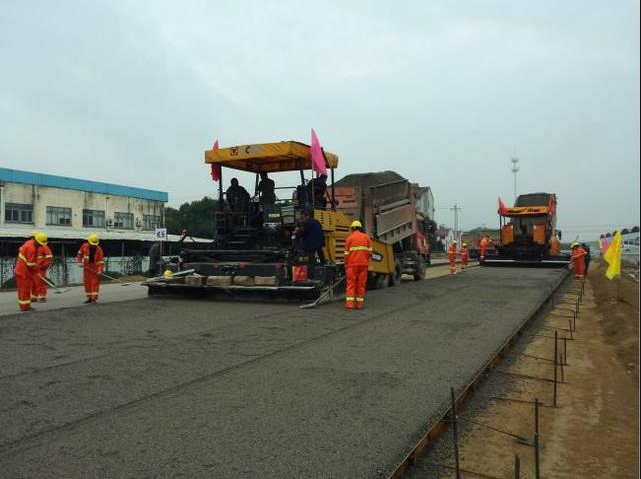

When using a dual machine joint paving of a 3-layer asphalt mixture structural layer, the overlapping positions of the lower and middle layers should avoid the lane wheel track. The tracks of the front and rear pavers should overlap by 30-60mm, and the overlapping positions of the middle and upper layers should be staggered by more than 200mm. The distance between the front and rear of the two pavers is generally 10-20m to ensure that the mixture does not segregate, and the longitudinal joint is a hot joint. The longitudinal joints of the surface layer should be located at the markings, and the remaining layers should be adjacent to both sides of the road markings. After each layer is paved, manual cooperation and edge tapping should be carried out to make the edges neat and dense.
5.攤鋪機(jī)開工前應(yīng)提前0.5~1h預(yù)熱熨平板不低于120℃。鋪筑過程中應(yīng)選擇熨平板的振搗或夯錘壓實(shí)裝置具有適宜的振動(dòng)頻率和振幅,以提高路面的初始?jí)簩?shí)度。熨平板加寬連接應(yīng)仔細(xì)調(diào)節(jié)攤鋪的混合料沒有明顯的離析痕跡。
5. Before starting the paver, the preheating of the ironing plate should be 0.5 to 1 hour in advance, and the temperature should not be lower than 120 ℃. During the paving process, the vibrating or ramming device of the screed should be selected with appropriate vibration frequency and amplitude to improve the initial compaction of the road surface. The widening connection of the ironing plate should be carefully adjusted until there are no obvious signs of segregation in the paved mixture.
6.攤鋪機(jī)的螺旋布料器應(yīng)相應(yīng)于攤鋪速度調(diào)整到保持一個(gè)穩(wěn)定的速度均衡地轉(zhuǎn)動(dòng),兩側(cè)應(yīng)保持不少于送料器2/3高度的混合料,以減少在攤鋪過程中混合料的離析。
6. The spiral distributor of the paver should be adjusted to maintain a stable and balanced rotation speed corresponding to the paving speed, and the mixture should be kept at a height of no less than 2/3 of the feeder on both sides to reduce the segregation of the mixture during the paving process.
7.熱拌瀝青混合料的低攤鋪溫度根據(jù)鋪筑層厚度、氣溫、風(fēng)速及下臥層表面溫度按《公路瀝青路面施工技術(shù)規(guī)范》(JTGF40-2004)5.2.2條執(zhí)行,且不得低于規(guī)范表的要求。
7. The low paving temperature of hot mix asphalt mixture shall be in accordance with Article 5.2.2 of the Technical Specification for Construction of Highway Asphalt Pavements (JTGF40-2004) based on the thickness of the paving layer, temperature, wind speed, and surface temperature of the underlying layer, and shall not be lower than the requirements of the specification table.
8.瀝青混合料的攤鋪速度控制在2~6m/min為宜,上面層攤鋪速度不應(yīng)超過5m/min,其攤鋪用料量應(yīng)和拌合機(jī)的產(chǎn)量相適應(yīng)。
8. The paving speed of asphalt mixture should be controlled between 2-6m/min, and the paving speed of the upper layer should not exceed 5m/min. The amount of material used for paving should be suitable for the output of the mixer.
9.移動(dòng)路脊法一般在上面層實(shí)施,具體施工方法如下:
9. The mobile ridge method is generally implemented on the upper layer, and the specific construction methods are as follows:
(1)采用移動(dòng)路脊法施工的路段長(zhǎng)度和路脊橫坡應(yīng)嚴(yán)格遵照設(shè)計(jì)實(shí)施。
(1) The length and cross slope of the road section constructed using the mobile ridge method should strictly follow the design implementation.
(2)根據(jù)采用移動(dòng)路脊法的施工路段長(zhǎng)度,在路段的起始端兩側(cè)取對(duì)角線,劃分兩個(gè)板塊施工,圖示如下:
(2) According to the length of the construction section using the moving ridge method, diagonal lines are taken on both sides of the starting end of the section, and construction is divided into two sections, as shown in the figure below:
(3)施工機(jī)械選擇及工藝
(3) Selection and process of construction machinery
應(yīng)采用可自動(dòng)調(diào)節(jié)寬度的攤鋪機(jī)并輔以人工配合進(jìn)行攤鋪和修整。板塊施工時(shí),攤鋪機(jī)根據(jù)路面寬度,采用不同寬度多幅攤鋪,每幅鋪筑均采用掛線法控制標(biāo)高,每幅按劃分的攤鋪寬度鋪對(duì)角線時(shí)開始自動(dòng)調(diào)縮攤鋪寬度,直按攤鋪機(jī)小攤鋪寬度鋪完本幅,再另起一幅攤鋪,直鋪完板塊,然后迅速以人工將對(duì)角線以外的多預(yù)料鏟除,并保證對(duì)角線順直。第二板塊也采用多幅鋪筑,攤鋪機(jī)不足部分由人工補(bǔ)齊。
A paver with automatic width adjustment and manual coordination should be used for paving and trimming. During the construction of the first section, the paver uses multiple pavers of different widths based on the width of the road surface. Each paver uses the hanging line method to control the elevation. When each paver is laid to the diagonal according to the divided paving width, the paving width automatically decreases until the small paving width of the paver is completed. Then, another paver is started until the first section is completed. Then, manually remove any unexpected areas outside the diagonal and ensure that the diagonal is straight. The second section also adopts multiple paving methods, and the insufficient parts of the paver are manually supplemented.
10.在路面狹窄部分、平曲線半徑過小的匝道、加寬部分、斜交橋頭等不能采用攤鋪機(jī)的部位可用人工攤鋪混合料。人工攤鋪應(yīng)嚴(yán)格控制操作時(shí)間、松鋪厚度、平整度等。
10. In areas where pavers cannot be used, such as narrow road surfaces, ramps with small flat curve radii, widened areas, and oblique bridge heads, manual paving of the mixture can be used. Manual paving should strictly control the operation time, loose paving thickness, flatness, etc.
11.嚴(yán)格按照設(shè)計(jì)銜接路面結(jié)構(gòu)層和橋隧過渡板(如下圖所示),并少提前準(zhǔn)備好工作面,處理好欠壓實(shí)、松散、不平整等問題,并掃除松散材料和所有雜物。監(jiān)理工程師應(yīng)對(duì)此檢查驗(yàn)收。
11. Strictly follow the design to connect the pavement structure layer and bridge tunnel transition plate (as shown in the figure below), and prepare the working surface at least one day in advance to handle issues such as undercompaction, looseness, and unevenness, and remove loose materials and all debris. The supervising engineer shall inspect and accept this.


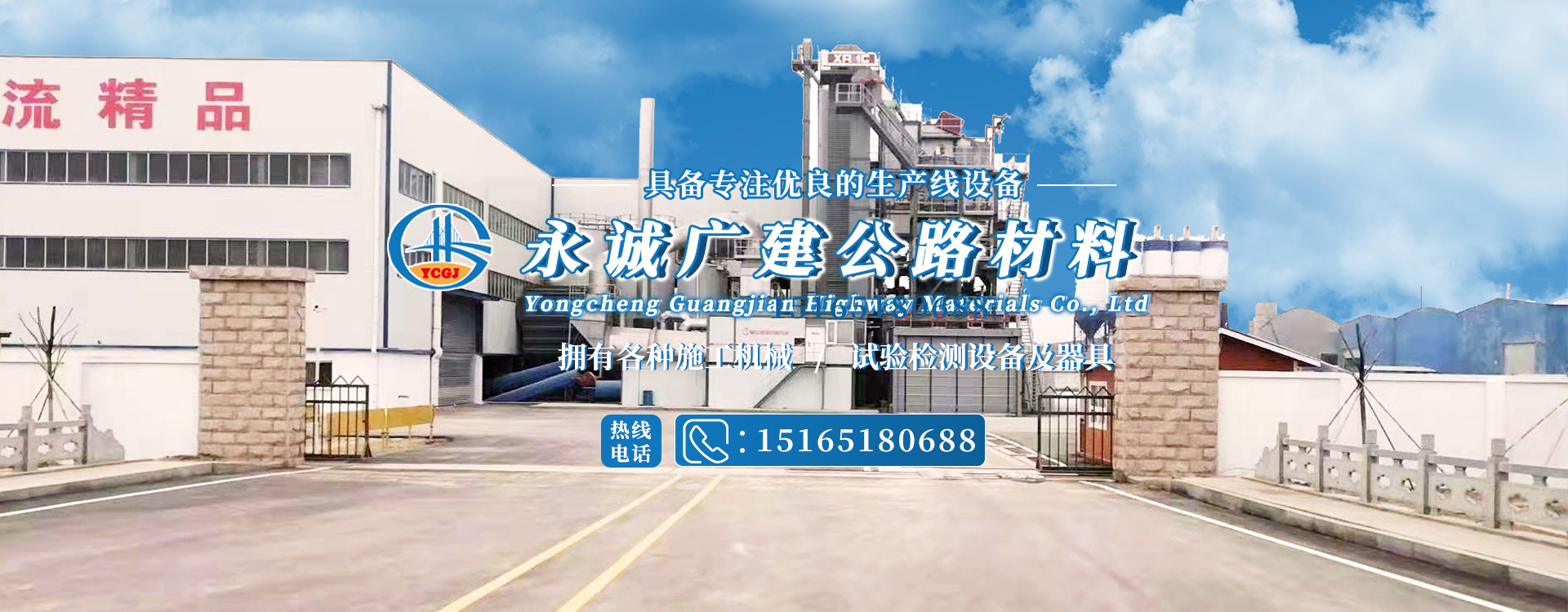
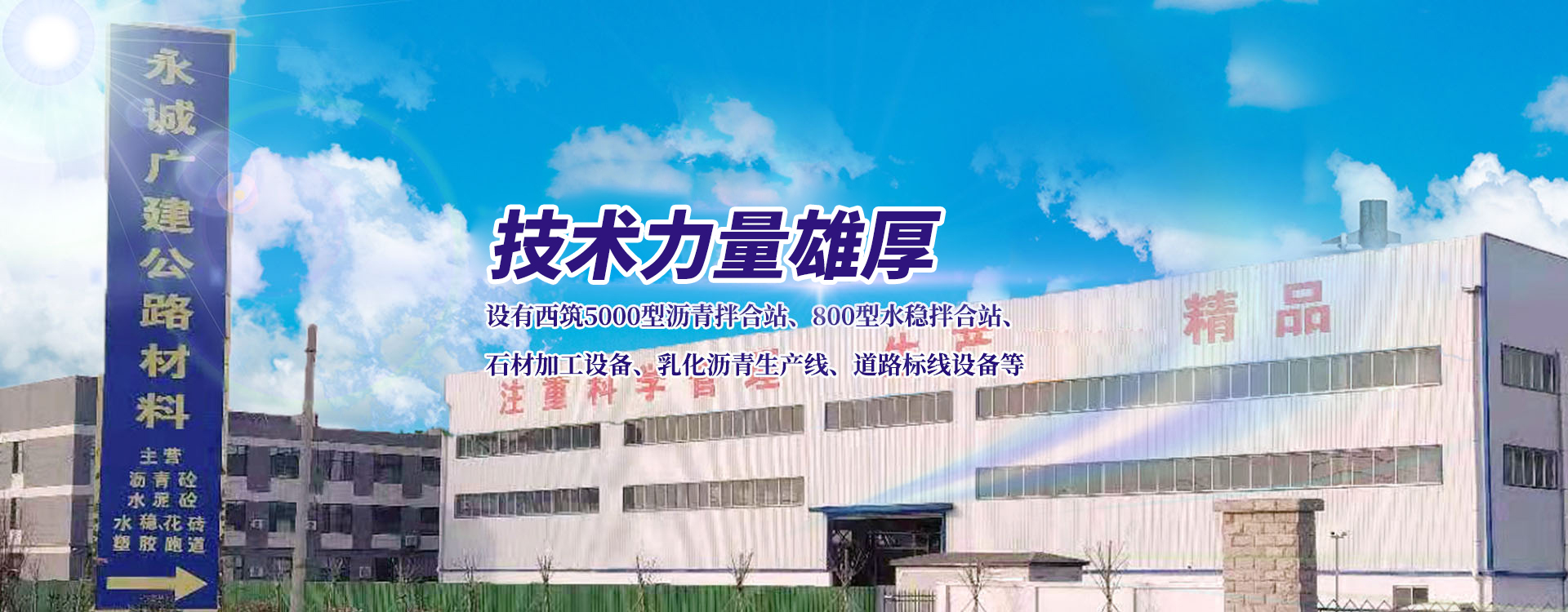
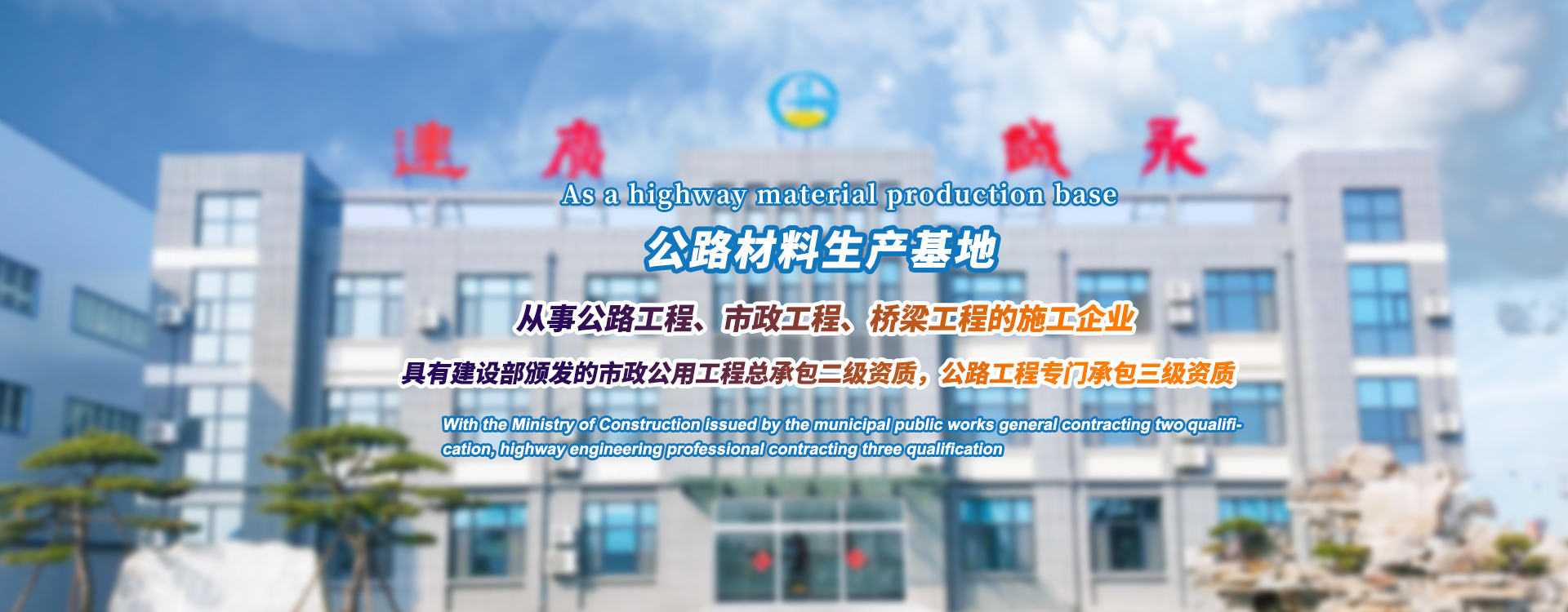


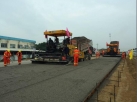




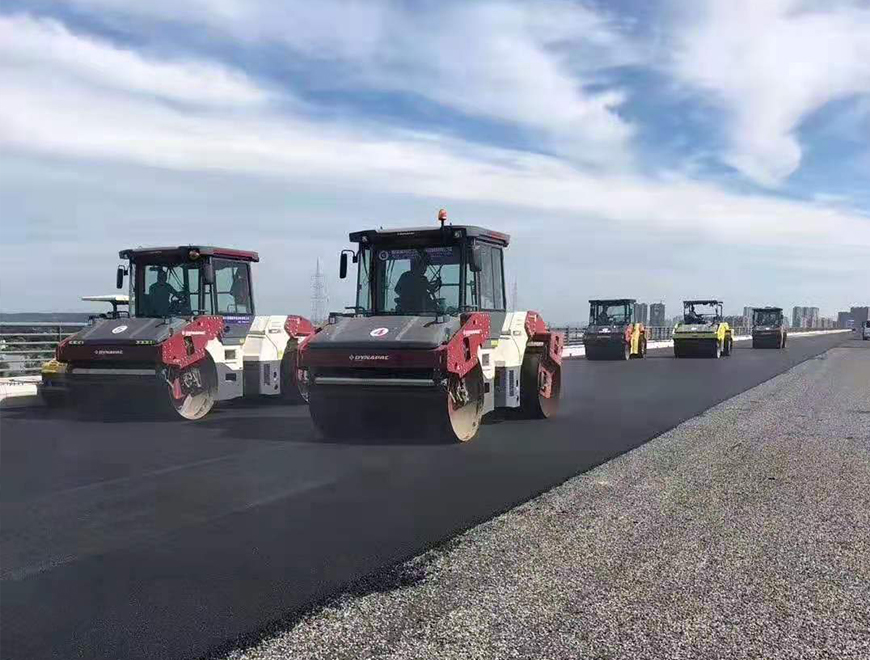

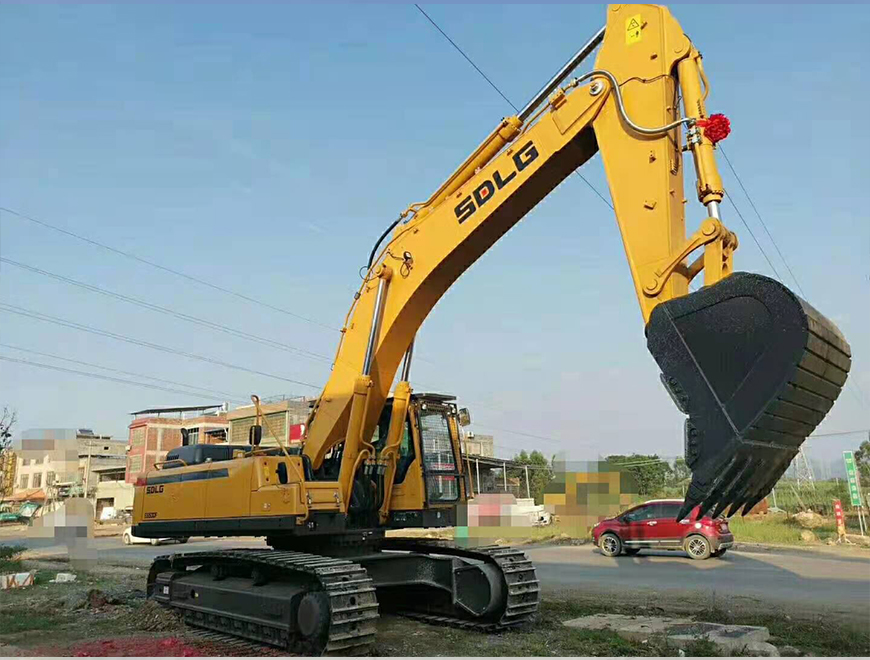






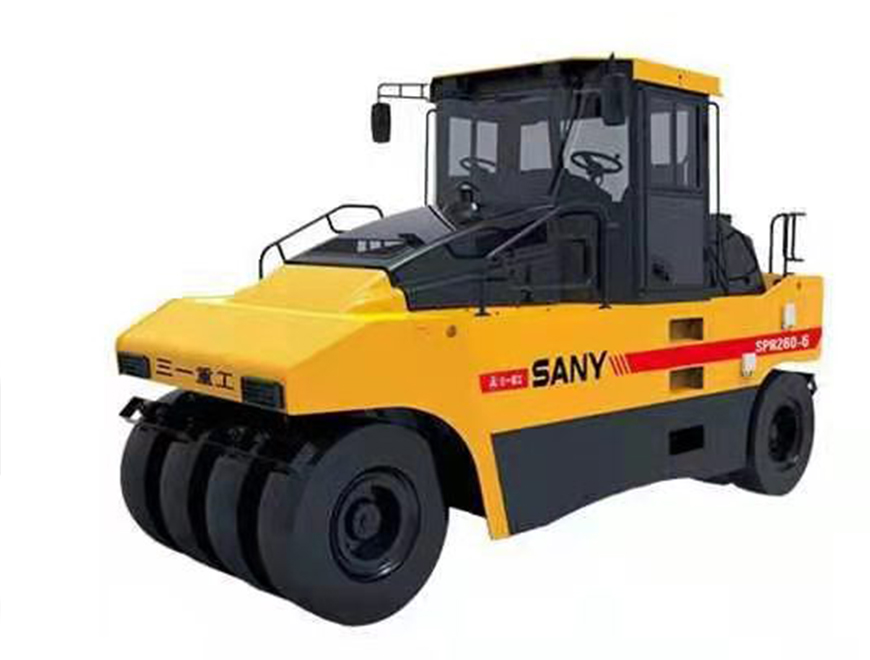
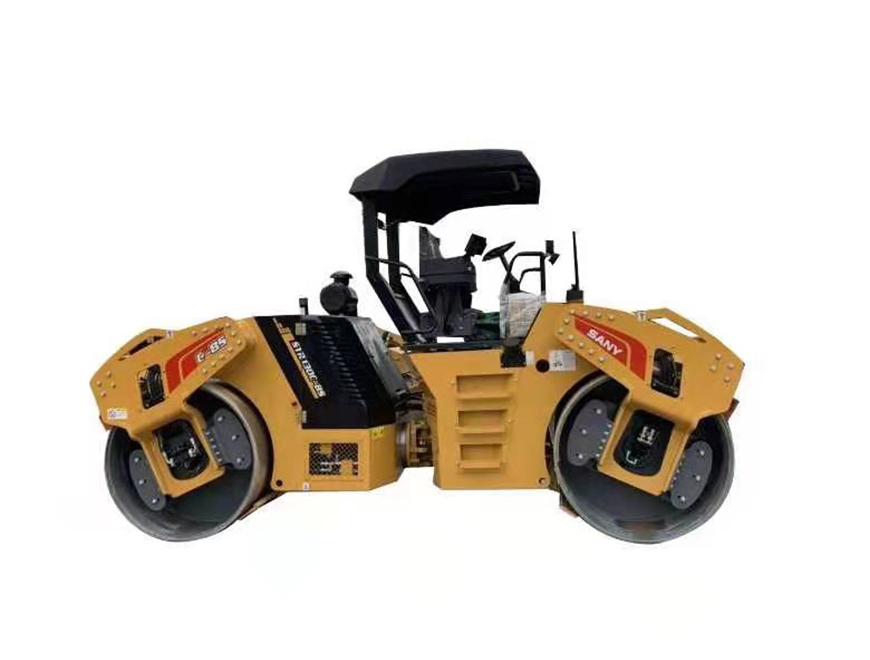






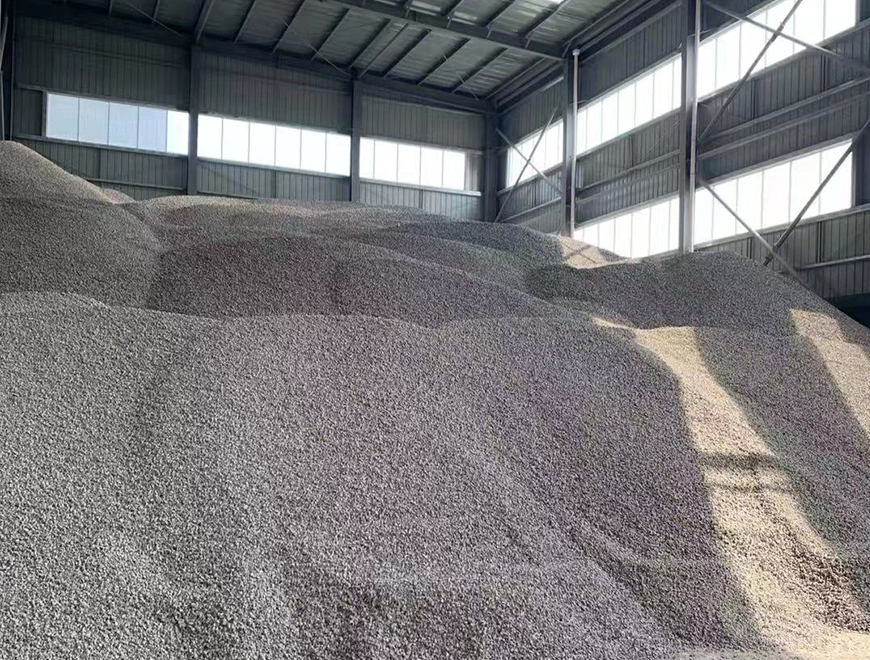

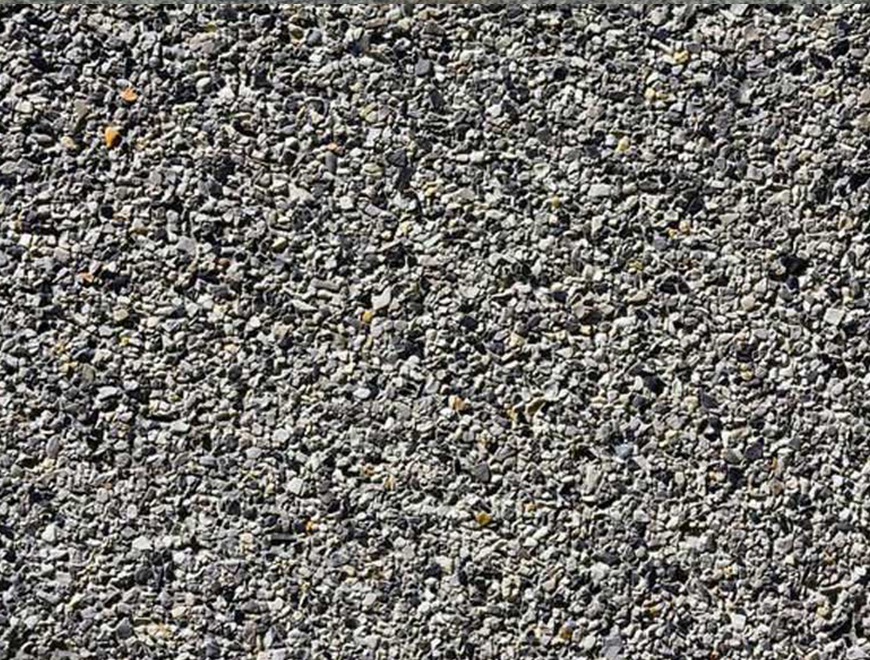




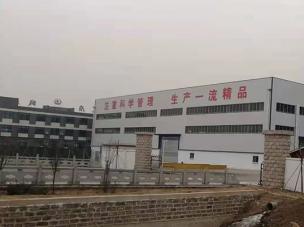

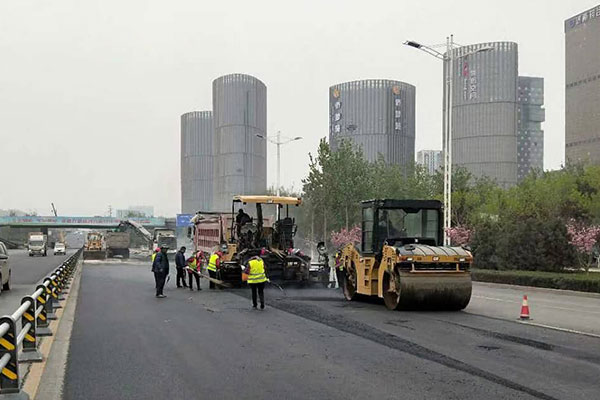





 公司地址:濟(jì)南市商河縣賈莊鎮(zhèn)民營(yíng)經(jīng)濟(jì)創(chuàng)業(yè)園
公司地址:濟(jì)南市商河縣賈莊鎮(zhèn)民營(yíng)經(jīng)濟(jì)創(chuàng)業(yè)園 公司名稱:永誠(chéng)廣建公路材料(山東)有限公司
公司名稱:永誠(chéng)廣建公路材料(山東)有限公司  備案號(hào):
備案號(hào):